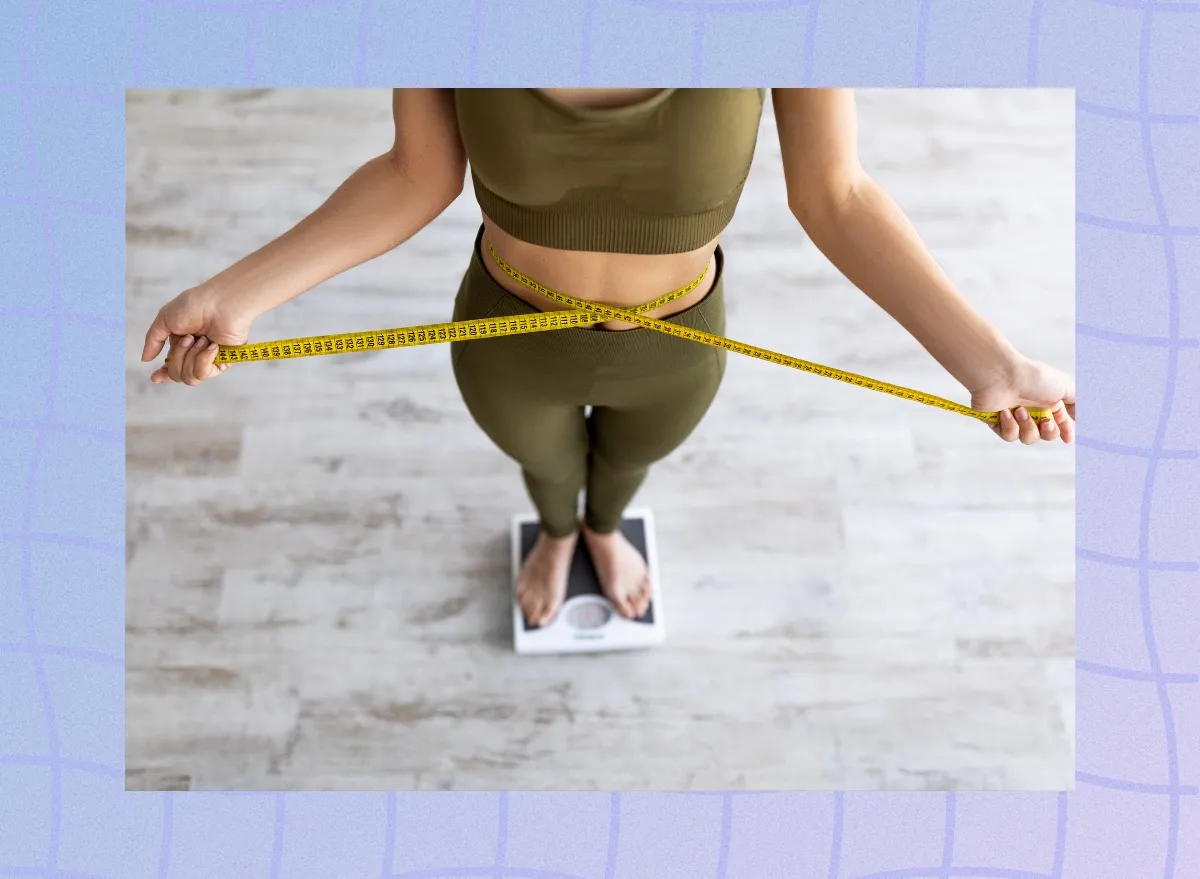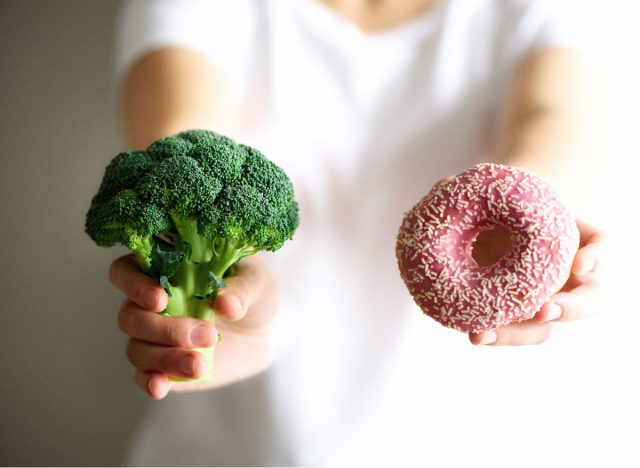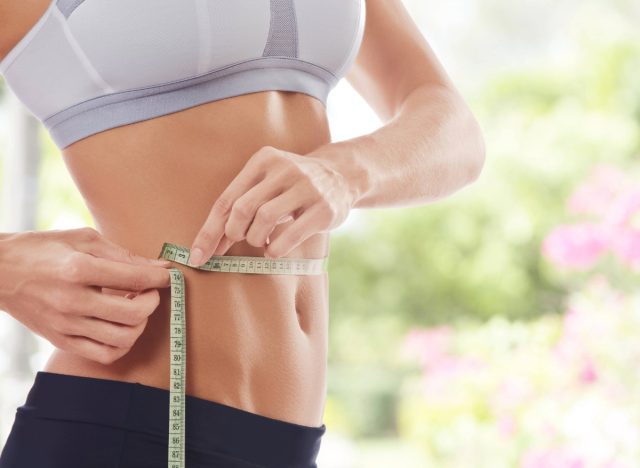Trying to Lose Weight? Here’s How Long It Takes to See Results

Navigating a weight-loss journey can be compared to riding an airplane. Once you take off, there may be some unexpected turbulence along the way, but touching down at your final destination makes everything well worth it. However, while you’re experiencing that so-called “turbulence,” you may wonder when you’ll see noticeable changes on the scale and in your physique. That’s why we’re breaking down exactly how long it takes to see weight-loss results.
When it comes down to it, your answer lies in how many calories you’re cutting and how many pounds you’re trying to lose. There’s no one-size-fits-all approach. That being said, it’s important to stick with healthy lifestyle habits and remain true to your goals.
How long does it take to see noticeable weight-loss results?

To achieve “meaningful” weight loss, you need to determine how many pounds you’re trying to lose. “Medically, losing 5% to 8% of one’s weight can improve biomarkers and improve medical conditions,” explains Dr. Amy Lee, chief medical officer for Lindora, a leading provider of medically guided wellness and metabolic solutions. “But for most, we want to see a leaner self or feel a new body. Typically, when someone cuts out a mild to moderate amount of daily calories, say 500 to 800 calories a day, they can see a good one to two-pound weight loss per week. ”
When you incorporate consistent physical activity into your routine, along with a good night’s rest, you can substantially boost your weight-loss progress. However, Dr. Lee points out that it’s common to experience water retention due to hormonal changes or shifts, so be patient with the process. “Most people do see weight change as early as seven to 10 days,” Dr. Lee adds.
What factors influence how quickly you lose weight?

- Hydration. Staying hydrated is essential for healthy weight management. Research shows that increasing your water intake can help reduce body weight. More specifically, drinking 500 ml of water before breakfast can speed up your weight-loss progress and decrease energy intake.
- Consumption of foods that lead to water retention. “It is not just salts that cause water retention,” explains Dr. Lee. “Simple carbs and sugar molecules also cause water to shift!” By eliminating refined carbs or processed sugars from your diet and opting for fiber and lean proteins instead, you can help a natural diuresis to occur, which means “shedding water.”
- Physical activity. Engaging in regular exercise torches calories, speeds up your metabolism, and helps you maintain (and build) lean muscle. All of these healthy habits contribute to quicker weight loss.
- Calorie intake. Establishing a calorie deficit—aka torching a greater number of calories than you consume—can play a major role in how quickly you lose weight. If you make it your goal to eat fewer calories than your body expends, you’ll shed unwanted pounds and see results.
Where do you lose weight first?

“There is no identified place for noticeable weight loss, but people oftentimes feel less ‘bloated’ in their abdominal area,” explains Dr. Lee. “Fat holds onto water weight as well, so that could be the reason why we feel our pants being a little looser in the ‘midgut’ area.”









